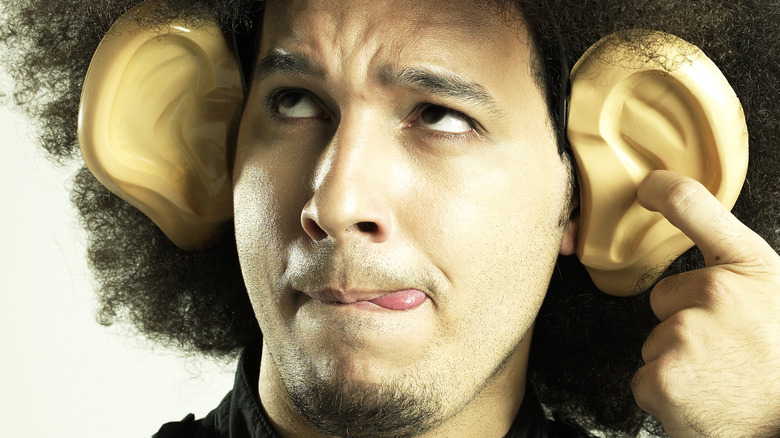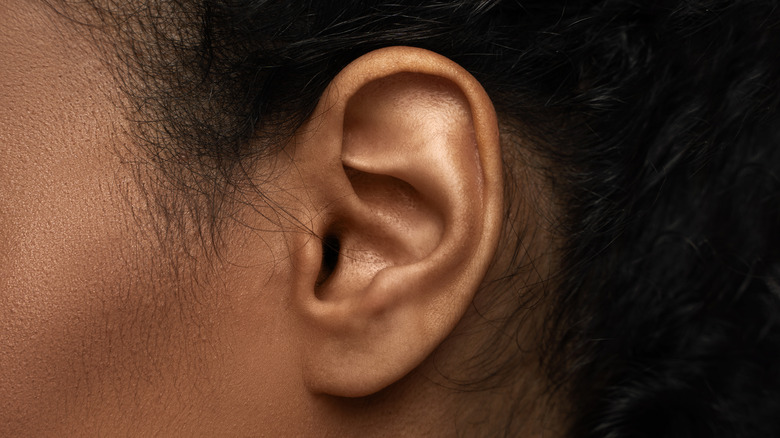Why Can Some People Wiggle Their Ears?
Humans are the result of untold millions of years of evolution, beginning with a common ancestor that we share with the other great apes, such as gorillas and chimpanzees (per Evolution: Education and Outreach). Because evolution is an ongoing process that takes place over billions of years, in some ways it can appear to be incomplete in humans. As Britannica explains, humans have vestigial features: body parts that were once useful to us but that we have evolved to no longer need or use. Examples include wisdom teeth, which about 95% of us will have to deal with at some point in our lives, according to dentist Dr. Glenn Green, and the palmaris longus muscle, which at one time was useful but which, in about 10% of us, is absent in both arms.
Another vestigial system in the human body is a number of muscles surrounding the ear. At one time, they enabled us to move our ears, but now they're nonfunctional muscles (in most humans), and in those who have them, the only benefit is being able to amuse friends by ever-so-slightly wiggling their ears. Most of us can't do it.
The auricular muscles
Animals — pets such as dogs and cats, or livestock such as donkeys and horses — can do a lot more with their ears than humans can. They can twitch them and, in some cases, can turn them — as much as 180 degrees in cats (per I Heart Cats), which have 32 external ear muscles, compared to the six that humans have. The reasons for this almost certainly have to do with predation; if an animal hears a sound, they can turn their ears towards it to listen more closely, without having to turn their heads.
Humans don't have this ability anymore, presumably because we don't need it. As Britannica reports, Charles Darwin posited that humans get by just fine by turning our heads toward sounds that may interest us, so there's no need for these auricular muscles. As Glamour reports, only about 10-20% of us can use them by wiggling them slightly. And that ability appears to be a roll of the evolutionary dice.
You Can (Maybe) Train Yourself To Wiggle Your Ears
If you've been feeling left out because someone in your life can wiggle their ears and you can't, and you want to learn how, it can probably be done. "It has been shown to be possible," said Daniel J. Strauss, a professor of neuroscience and neurotechnology at Saarland University Hospital in Germany (via Live Science).
So, how to learn to do something that will serve you no purpose other than being able to say that you can do it? Hearing Health & Technology Matters provides a step-by-step method, although the website notes that it got its information from WikiHow, described by writer Robert Traynor as "semi-reliable." The New York Times reported in 2017 that it was possible to develop ear-wiggling to at least some degree through "concentration and practice," but even that wouldn't be of help if you don't have at least some inborn ability to begin with.


